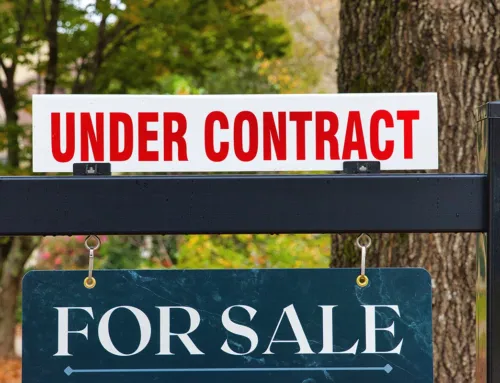Imagine this: you've owned a rental property for a few years. Maybe it's served you well—covered the mortgage, even put some cash in your pocket. But now, your goals have changed. You're ready to cash out, move on, or reinvest elsewhere. You start to explore your options, only to realize… there's still a tenant living in the home.
If you're asking, "How do I sell my rental property with a tenant in it?", you're not alone. Many landlords face this exact situation, especially in places like Cleveland, Parma, and Lakewood, where tenant-occupied homes are common. The right move depends on a few key factors. Let's break down the pros and cons of selling a tenant-occupied property, how issues like unpaid rent or evictions impact value, and how to choose the best path forward, whether your rental is vacant or still occupied.
Benefits of Selling a Tenant-Occupied Property
While there are definitely challenges (we'll cover those in a second), there are some clear upsides to selling a rental with the tenant in place:
- Immediate Income for the Buyer: If your tenant is paying on time, that's instant cash flow for an investor.
- Turnkey Appeal: A property that doesn't need repairs and already has a paying tenant is a plug-and-play deal for the right buyer.
- Zero Vacancy Costs: You'll continue to collect rent while the property is on the market, which helps offset holding costs.
- Targeted Buyer Pool: This is a great fit for other landlords or investors…people who are ready to buy based on numbers, not emotion.
- Documented Rental History: A consistent lease and payment record builds confidence and makes the property more attractive.
5 Pitfalls of Selling a Tenant-Occupied Property
That said, there are definitely a few things to watch out for:
- Limited Access for Showings: Tenants might not allow flexible access, which reduces buyer traffic and momentum.
- Presentation Challenges: Tenants aren't always motivated to keep things clean or "show-ready."
- Unpredictable Cooperation: Some tenants feel threatened by the idea of the home being sold and may actively or passively make the process harder.
- Lease and Legal Complications: Depending on your local laws and lease terms, you may not be able to end the lease or remove the tenant easily.
- Reduced Buyer Pool: Many buyers, especially families or first-timers, don't want to deal with a tenant. That narrows your market to mostly investors.
The Impact of Delinquent Tenants or Evictions on Property Value
Here's where it gets trickier: if your tenant isn't paying rent or is going through the eviction process, the value of your property can take a major hit.
Buyers will almost always demand a discount to account for:
- Lost rent income
- Legal fees
- The time and risk involved in getting the tenant out
According to a 2022 Urban Institute study, properties with active eviction cases sold for 10–15% below market value on average. In parts of Cleveland, where rental properties are plentiful, these situations aren't uncommon, and buyers know what to look for. On top of that, lenders may hesitate to finance a purchase when there's a legal dispute involved, which can scare off retail buyers entirely.
So, What's the Best Way to Sell a Rental? It Depends.
At the end of the day, how you approach the sale depends on one simple question:
Is the property vacant or is there a tenant in place?
Scenario 1: The Property is Vacant
You're in the driver's seat. You can:
- Make light cosmetic improvements
- Stage or clean the property
- Market it to retail buyers (the traditional route)
- Host open houses, schedule showings, and aim for top dollar
A clean, vacant property, especially in competitive suburbs like Lakewood or Parma, gives you the best shot at a bidding war or full-price offer.
Scenario 2: The Property is Tenant-Occupied
This is where you want to keep things simple and strategic:
- Focus on investors or cash buyers who don't need to move in
- Skip the heavy repairs or updates because most buyers in this lane prefer to buy "as-is"
- Expect limited showing windows and possibly no formal inspections
- Aim for a fast, clean exit with minimal disruption to the tenant
In a city like Cleveland, where many buyers are familiar with investment properties, this can be a solid path forward.
Need Help Navigating the Sale of Your Rental Property?
Whether your place is vacant, tenant-occupied, or somewhere in between, we've helped countless landlords across Northeast Ohio find the right path. If you want to explore your options (traditional listing, investor sale, or a hybrid of both), reach out and let's talk.





